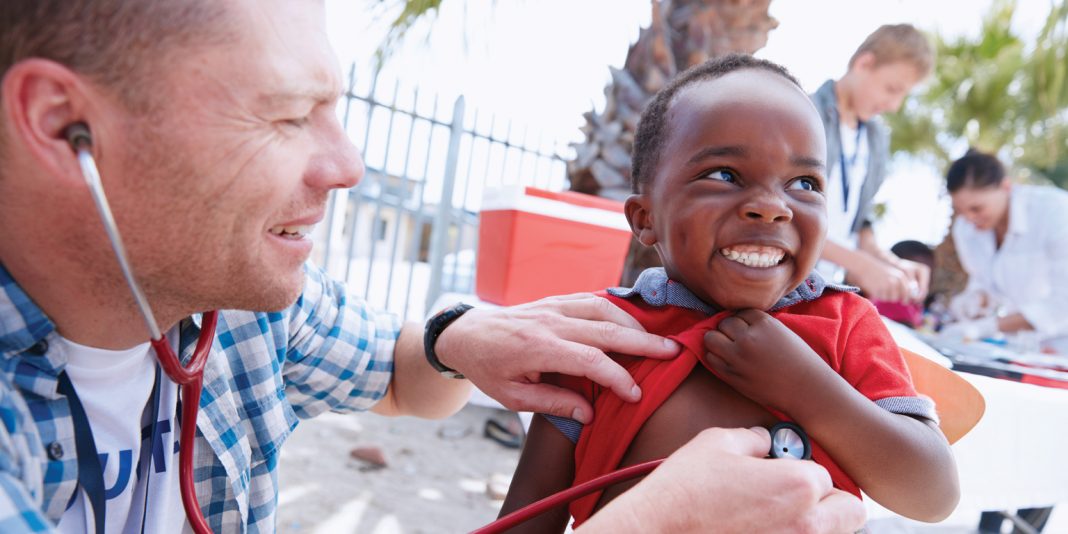Nursing Review outlines some of the overseas volunteering options available to Kiwi nurses.
Médecins Sans Frontières (MSF or ‘Doctors Without Borders’)
Médecins Sans Frontières (MSF) was founded in France in 1971 and now has about 30,000 field staff providing medical assistance to populations in danger around the world. New Zealand field workers are recruited through MSF Australia’s Sydney office, which sends and supports about 200 Australians and New Zealanders field workers a year.
Registered nurses applying to join MSF need at least three years’ post-registration experience in areas ranging from emergency to public health and must be available for a minimum of nine months in potentially unstable locations.
A typical field placement lasts from six to 12 months. MSF covers travel arrangements and costs, accommodation, daily living costs, a monthly salary and additional benefits.
www.msf.org.nz/join-our-team/work-overseas
Mercy Ships
Mercy Ships is a Christian charity that since 1978 has been anchoring its volunteer-run hospital ships in the harbours of some of the world’s poorest countries. It offers free, life-changing operations, post-surgery rehabilitation, and help to build local healthcare workers’ skills. The current hospital ship Africa Mercy has five state-of-the-art operating theatres and five wards and plans to launch a second ship this year.
Mercy Ships New Zealand recruits and supports about 40 Kiwis volunteer to serve on board the Mercy Ship each year. All volunteers on Mercy Ships pay their own way and are required to provide or raise their own funds to cover crew fees, insurance, transportation to and from the ship and personal expenses.
Nurse volunteers need a minimum of two years’ experience and commit for two weeks to a maximum of three years.
New Zealand Defence Force Reserves (Territorials)
Nurses can apply to serve as part-time nursing officers in the Army Reserve (also known as the Territorial Force). Reserve nursing officers are required to have a current registered nurse APC, pass a medical assessment and an Officer Selection Board and undergo specialist training. Various military or health-related training opportunities are available throughout the year.
There is the potential for paid travel overseas, either for training purposes or humanitarian assistance, as well as for longer deployments supplementing the regular defence forces. Reserve officers are paid a daily rate based on their seniority.
www.defencecareers.mil.nz/army/jobs/army-reserve/reserve-officer
New Zealand Medical Assistance Team (NZMAT)
NZMAT is a Ministry of Health-organised and trained volunteer group deployed by the Government in response to requests in major emergency situations – predominantly in the South Pacific.
Nurses make up about 80 of the 180 trained NZMAT staff. Teams have been sent to the Solomon Islands, Vanuatu and Fiji since NZMAT was founded in 2013.
About half of the nurses on the volunteer database currently are emergency nurses; the rest are primary health nurses, mental health nurses and other specialties. Nurses need employer approval to be deployed within as little as 24 hours and for up to 14 days for an international deployment.
Travel costs and living expenses are covered by NZMAT and team members are paid at their usual pay rates while on deployment.
www.health.govt.nz/our-work/emergency-management/new-zealand-medical-assistance-team
New Zealand Red Cross
Since 1960 the New Zealand Red Cross has been recruiting, training and sending nurses and other aid workers to support International Red Cross field operations around the world. Kiwi Red Cross international aid workers are supported by Ministry of Foreign Affairs and Trade aid funding and by donors.
Nurse applicants need a minimum of three or four years’ post-registration experience, plus previous humanitarian and/or cross-cultural experience. New Zealand Red Cross has a pool of more than 130 trained technical aid workers, including nurses, available for deployment.
Standard missions range from six to 12 months, with shorter missions of two to eight weeks offered during emergency responses. Aid workers are employed on fixed-term contracts that cover salary, travel costs, all pre-deployment and post-deployment support, medical clearance and insurance.
www.redcross.org.nz/get-involved/aid-worker-programme
Specialists Without Borders (SWB)
Specialists Without Borders was established in Australia in 2008 by now New Zealand-based surgeon Paul Anderson and fellow Kiwi Trevor Walker to meet a need for specialist-led education in Africa.
A SWB nursing programme was launched in 2014 offering annual, nursing education seminars held over a two week period in Zimbabwe and Malawi. Last year 84 nurses turned up to a three-day seminar in Zimbabwean capital Harare. Current SWB nurse volunteers come from backgrounds in maternal and child health, anaesthetics and recovery, neurosurgery, and intensive care nursing.
Nurses on the programme pay their own airfares, accommodation and volunteer to teach for two weeks. SWB is also considering taking up to four student nurses from Australia and New Zealand on future programmes.
www.specialistswithoutborders.org/sample-page/nursing-program/
Volunteer Service Abroad (VSA)
Volunteer Service Abroad was founded in New Zealand in 1962 with Sir Edmund Hillary its founding chairman. It currently focuses on meeting requests for expert volunteers from eight countries (mainly in Melanesia and Polynesia). In recent years VSA has sent nursing advisors/educators to Bougainville, Papua New Guinea and Kiribati and currently has nurses serving overseas as diabetes nurse advisors and mental health programme advisors.
VSA workers are supported by Ministry of Foreign Affairs and Trade aid funding and by donors. Most assignments are for one to two years but it sometimes has short-term assignments.
Volunteers receive a living allowance, and accommodation, insurance, and medical costs are provided. Travel arrangements are organised and funded by VSA, along with other costs. For assignments of six months upwards, a partner may apply to accompany the volunteer and if accepted their expenses are also covered by VSA.





















